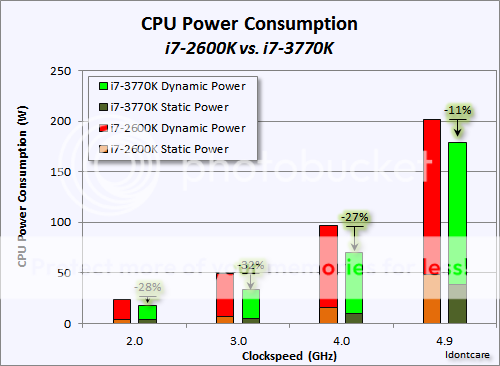Should CPUs have stayed single core?
I don't see any difference, but then I'm a noobster so that's why I'm asking.
I don't see any difference, but then I'm a noobster so that's why I'm asking.

Should CPUs have stayed single core?
I don't see any difference, but then I'm a noobster so that's why I'm asking.
But really, if I could trade in my quad for a single core with 4x performance, I problary would.
That's probably because you understand Amdahl's Law.
They are not, one fast core would be better.
12ghz single core cpu > 3ghz quad core cpu
Assuming IPC is equal.
The single core would run everything fast, the quad will not, the single core is easier to program for as well.
Its just design limitations (something to do with silicon i believe) that meant we had to go parallel with many cores instead of a single fast core.
edit : but I really do like atleast a dual system, many times I have had a single thread halt everything else(hey, lets do this realtime, what can go wrong?) , having a backup cpu that lets me swap to my os and kill the thread have saved me many times.
They are not, one fast core would be better.
12ghz single core cpu > 3ghz quad core cpu
Assuming IPC is equal.
The single core would run everything fast, the quad will not, the single core is easier to program for as well.
Its just design limitations (something to do with silicon i believe) that meant we had to go parallel with many cores instead of a single fast core.
This is patently, blatantly wrong on so many levels. So many considerations go into software development that transcends the "faster-is-better" mantra that turns this postulation into the Titanic. Even given all things being equal on the IPC front, properly designed software to take advantage of multiple cores running at 1/4 the clock speed of a single core equivalent CPU could potentially blow the doors off that single core. And conversely, all things being equal, properly designed software designed to run on a single core would blow the pants of a poor multi-core implementation.
But the single core won't run twice as fast. If it could, we'd have those mythical 10GHz CPUs that Netburst was supposed to evolve us too. Really fast, with SMT to take care of the context switching problems, and hide high latencies (in bad benchmarks).Case 1. You have two equally demanding tasks, running in parallel. What CPU would be faster, the single core or the dual core? The single core runs twice as fast as the dual core and everything runs in the cpu's cache so we can ignore the penalities of the subsystem.
We all would, I'm sure. But the trade off isn't nice and linear. They very well might not be able to make a single core CPU with even 2x the performance of current quads, in the same die area.But really, if I could trade in my quad for a single core with 4x performance, I problary would.
assuming ipc is the same and assuming software utilization is 100% optimized.
singe 12ghz vs four 3ghz. the same amount of work would get done. difference would be negligible. the four 3ghz core might get a little more done due to lower latency of parrellel processing.
since software utilization is currently broke. singe core is the clear winner.
as soon as software utilization is fixed. multi core will be the winer. lower heat, lower power, lower latency.

Would a 12ghz single core necessarily multitask better than a 3ghz quad core? Or even equally as well?


